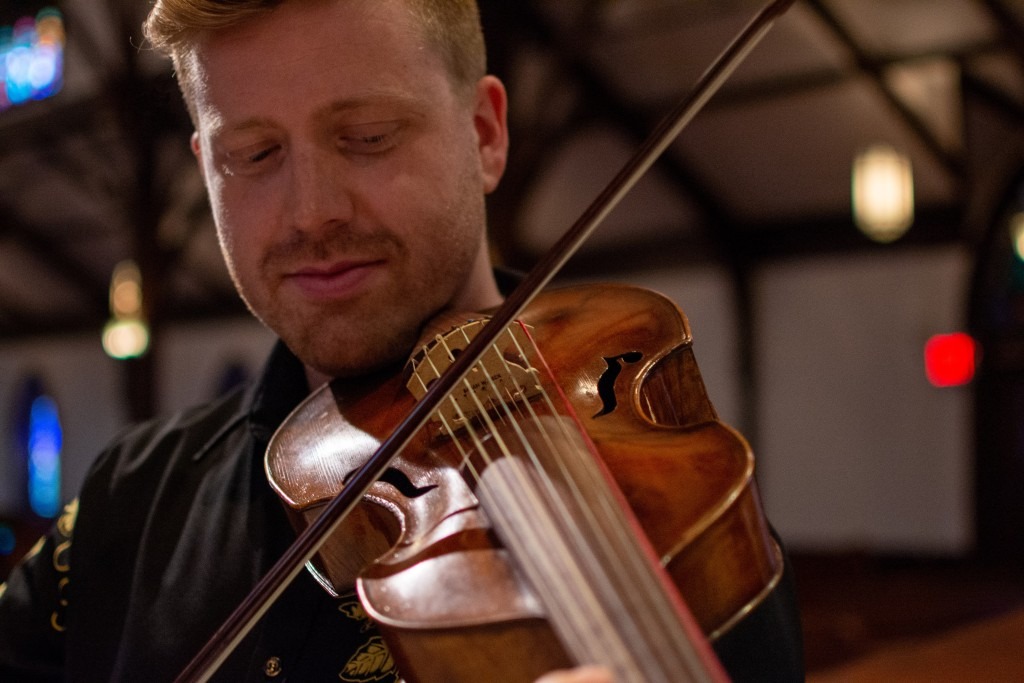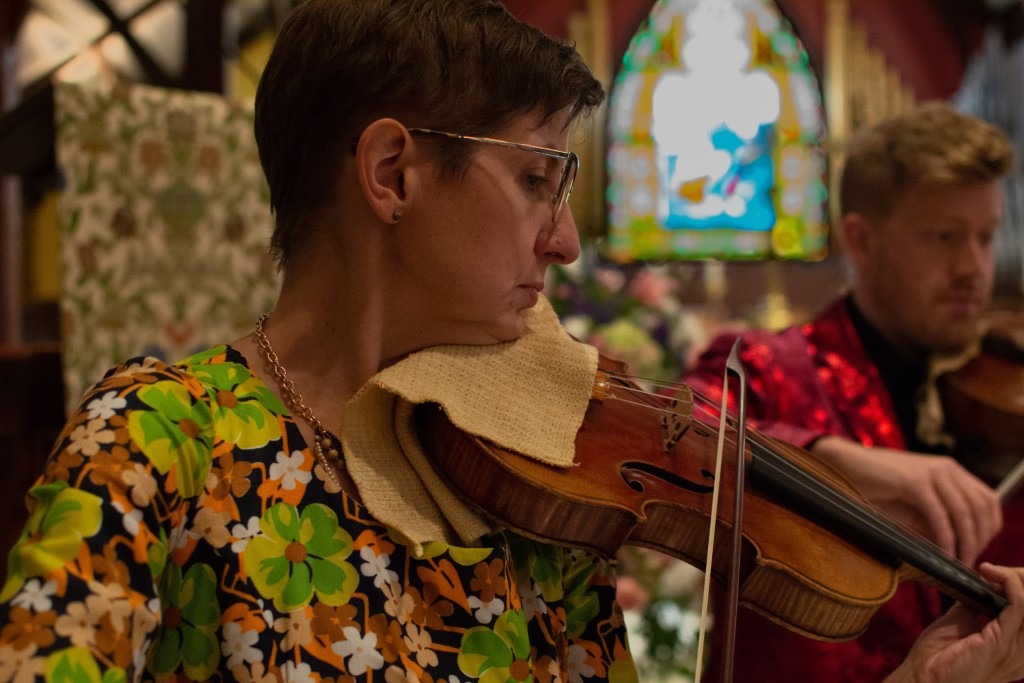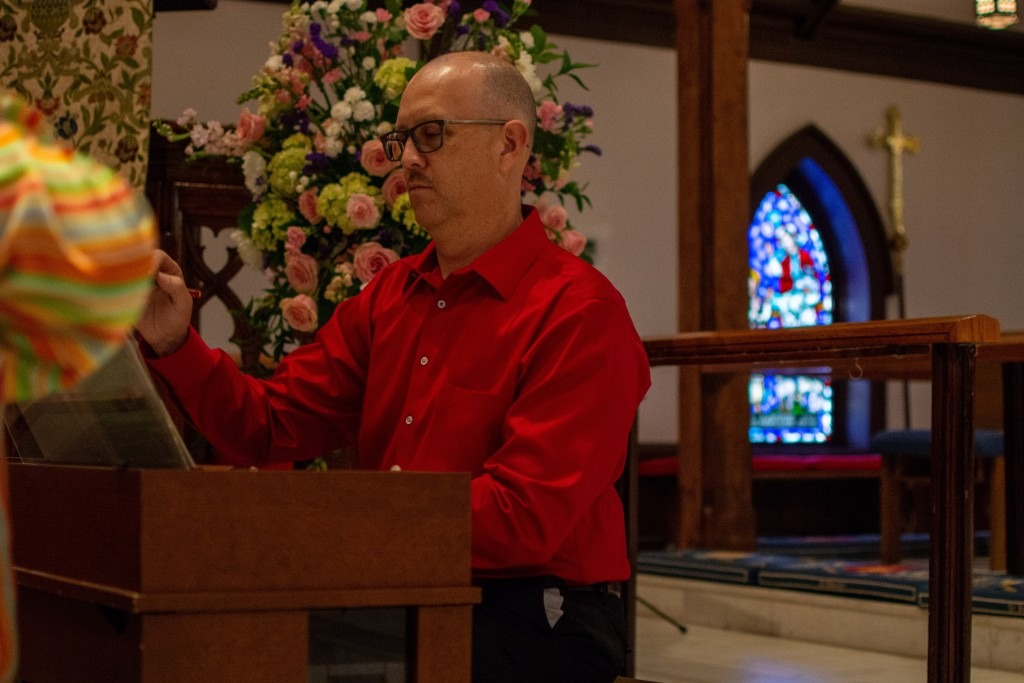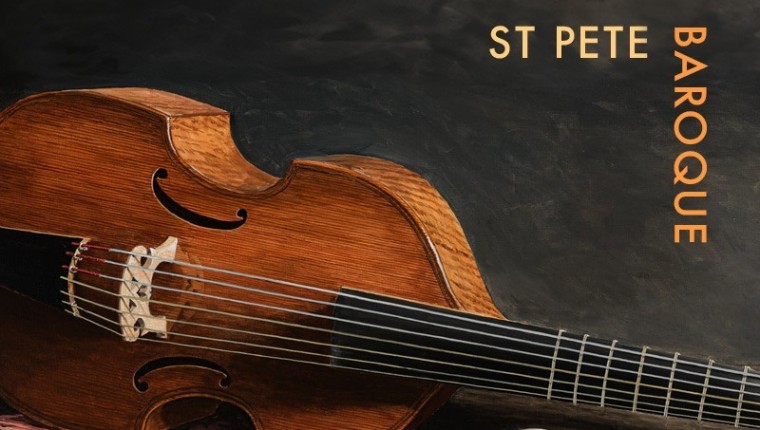Cabinet of Curiosities in Concert
January 21 at 5 pm
Free, donations welcome
St Petersburg
Details here
Are you curious about classical music? What secrets and revelations lie in the rarefied scores that make up this genre?
Find out this weekend during a performance by St. Pete Baroque, which formed in 2021 with the idea of playing music that resides outside the popular repertoire of orchestras and most modern chamber groups. It focuses on the Baroque era − 1600 to 1750 − and includes thousands of manuscripts that continue to be discovered and rediscovered to this day.
“We’re dedicated to giving new life to old masterpieces, giving a voice to recently discovered works and bringing audiences the eccentric and improvisatory nature of Baroque music,’’ says Dan Urbanowicz, founder of the group and a violist with the Sarasota Orchestra.

This latest program, Cabinet of Curiosities, opens a treasure chest of old music that may seem, well, new to the ears. Don’t expect the usual Handel or Bach – the menu includes such neglected names as Josef Fuchs, Franz Gotz and Salamone Rossi.
“I think this program would be of interest to anybody familiar or unfamiliar with this type of music,’’ says Urbanowicz. “This isn’t your run-of-the-mill chamber concert with long pieces that take some training to understand and appreciate.
“One of the great things about Baroque music is that hardly any piece is longer than about 10 minutes. This allows us the opportunity to program lots of different and eclectic works.’’
Because the 150-year Baroque period spanned the longest of any other musical era – and when so many composers wrote copiously to eke out a living − it offers a sumptuous platter of pieces to choose from.
“In just over an hour we can go from the noble high Renaissance of Spain to a lonesome viola d’amore player in the hills of Bohemia,’’ he says. “We can experience the music of a Jewish-Italian composer who composed cantatas in Hebrew and brushed shoulders with Monteverdi. Additionally, we have instruments rarely heard or seen in modern concert halls today.’’

One is the viola d’amore, a 14-stringed instrument with a carving of a cherub at the end of the scroll. The otherwise modern violin and cello will sound slightly different on Sunday because they wear strings made of sheep gut, giving them a softer but more complex texture.
Tunings also differ. The strings of the Baroque fiddle, for instance, are set to A flat instead of the traditional A, at a pitch of 415 vibrations per second instead of the standard 440.
Although the music for this weekend’s concert music might be considered old, that doesn’t mean it’s gotten a lot of airplay over the years. In fact, one set of pieces wasn’t even discovered until 2013, when historicans found it among the archives of the National Museum of Prague.
“What’s interesting is that these were written in 1790 long after the viola d’amore was considered dead by most historians,’’ Urbanowicz adds. “These works were recently discovered and have never been performed live.’’

Rounding out the concert will be Sarah Shellman on Baroque violin, Michael Amos on Baroque cello, and Brent Douglas on harpsichord and organ. Ubanowicz says performing with his St Pete Baroque colleagues has deepened his respect for so much neglected music of the past.
“I feel a deep sense of responsibility that I should understand the history and purpose behind each piece we perform,’’ he says. “I’m very interested in composers whose story is worth telling, but for whatever reason their music has slipped into obscurity.
“I feel that by presenting these obscure composers we can bring them back to life in a way that’s meaningful. What brings me joy is making music with friends and rediscovering lost worlds together through music.’’
St. Pete Baroque
January 21 at 5 pm
Cathedral Church of St. Peter
140 4th St N
St Petersburg FL 33701
Free, donations welcome
RSVP requested here



